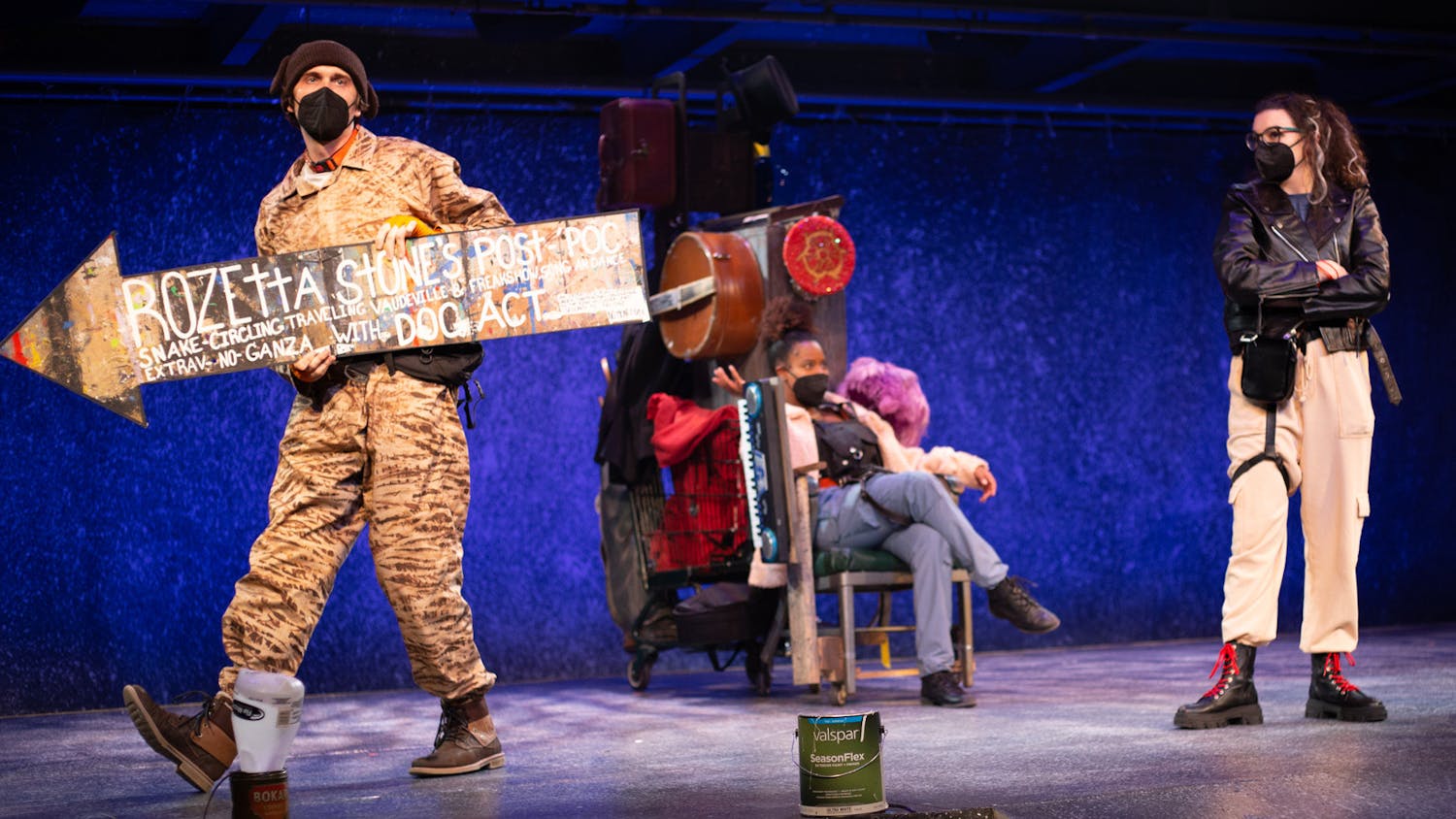“Group mind” is an artsy improv term, and
it can be hard to reach within many teams.
Group mind is the ability to predict what
moves your teammates will make so that you can respond correctly.
It's also the ability to make clear moves for your teammates, so
that they can react appropriately.
When I say “moves,” I’m referring to the
choice of words and movements each performer makes on stage. In a
scene, when a player defines the room they’re in as a kitchen, that
is a move that his or her teammates accept and use.
Unless you form a team composed of your
childhood friends, chances are you’ll be placed in a team with
people whom you don’t know well.
However, a team should be a collective
group effort. Everyone in a team should be on the same page;
otherwise, the show will fall apart. When it looks like six
individuals are simply saying words on a stage, the team is
disjointed, and it has lost its group mind.
I’m about to turn this into a metaphor, so
bear with me.
During each show, performers are putting
together a puzzle, and each move is a puzzle piece. The kicker is
that none of them have any idea what the puzzle should look like in
the end.
By making moves in scenes as clearly and as
early as possible, performers discover more pieces of the
puzzle.
Teams that exhibit strong group mind don’t
appear confused while they are performing. They make bold and
confident moves because of the trust that exists between them.
Strong group mind allows teams to push
their boundaries and discover new levels of funny.
"mso-spacerun: yes;"> Once you get it, you can go
anywhere.
If a team cannot achieve a working level of
group mind, the performance often suffers and looks clunky.
Group mind allows a team to combine each
player’s individual styles into a single vision. However, simply
knowing the definition is not enough. Every team has to work
diligently to achieve a successful level of group mind.





